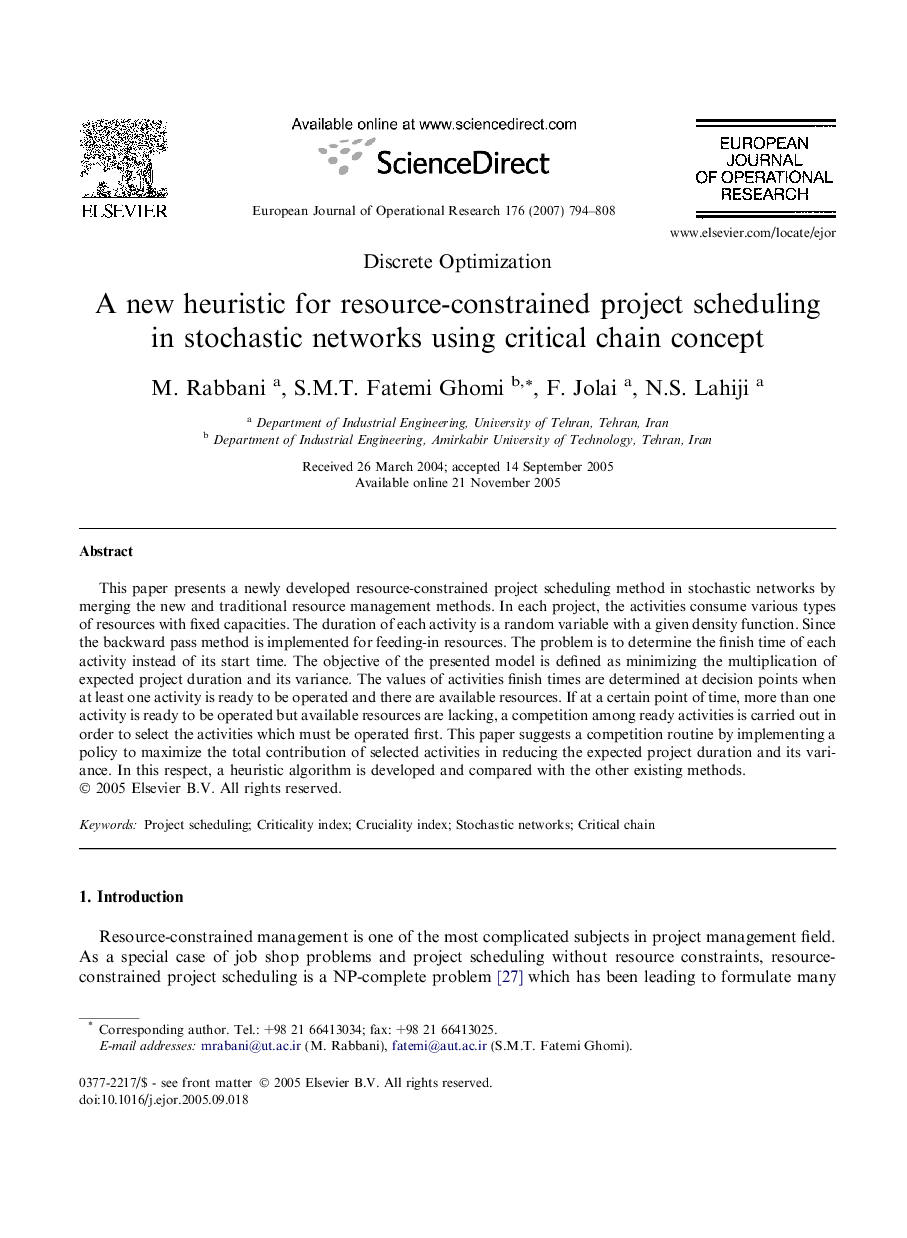| Article ID | Journal | Published Year | Pages | File Type |
|---|---|---|---|---|
| 482416 | European Journal of Operational Research | 2007 | 15 Pages |
This paper presents a newly developed resource-constrained project scheduling method in stochastic networks by merging the new and traditional resource management methods. In each project, the activities consume various types of resources with fixed capacities. The duration of each activity is a random variable with a given density function. Since the backward pass method is implemented for feeding-in resources. The problem is to determine the finish time of each activity instead of its start time. The objective of the presented model is defined as minimizing the multiplication of expected project duration and its variance. The values of activities finish times are determined at decision points when at least one activity is ready to be operated and there are available resources. If at a certain point of time, more than one activity is ready to be operated but available resources are lacking, a competition among ready activities is carried out in order to select the activities which must be operated first. This paper suggests a competition routine by implementing a policy to maximize the total contribution of selected activities in reducing the expected project duration and its variance. In this respect, a heuristic algorithm is developed and compared with the other existing methods.
